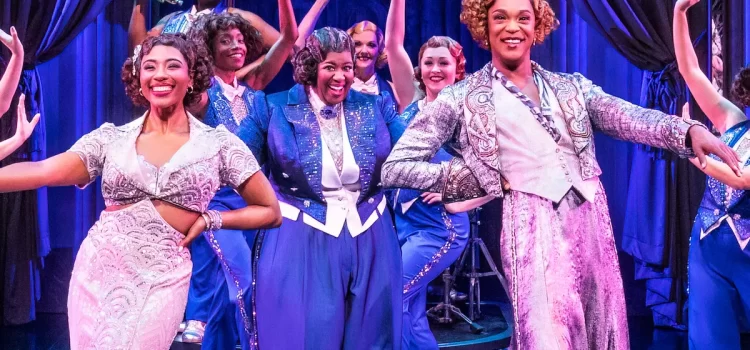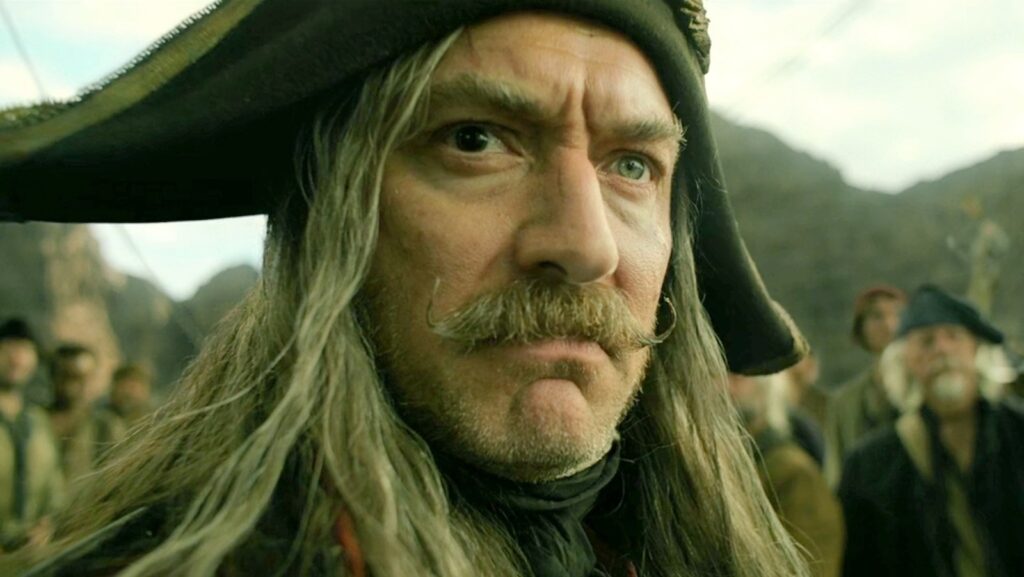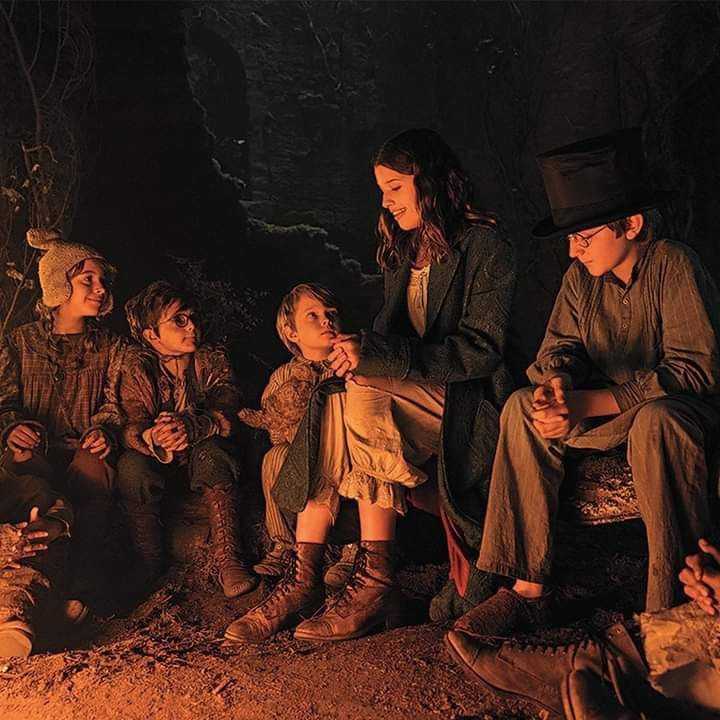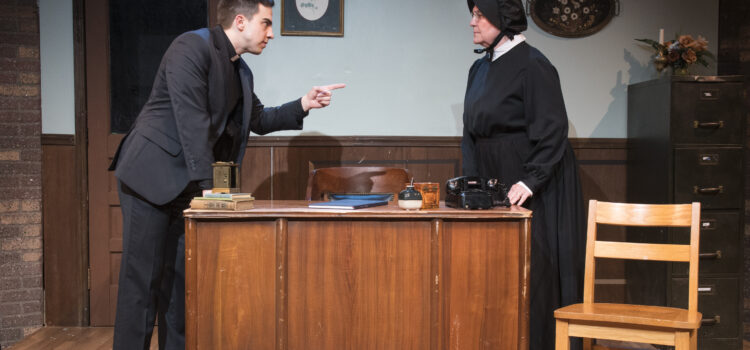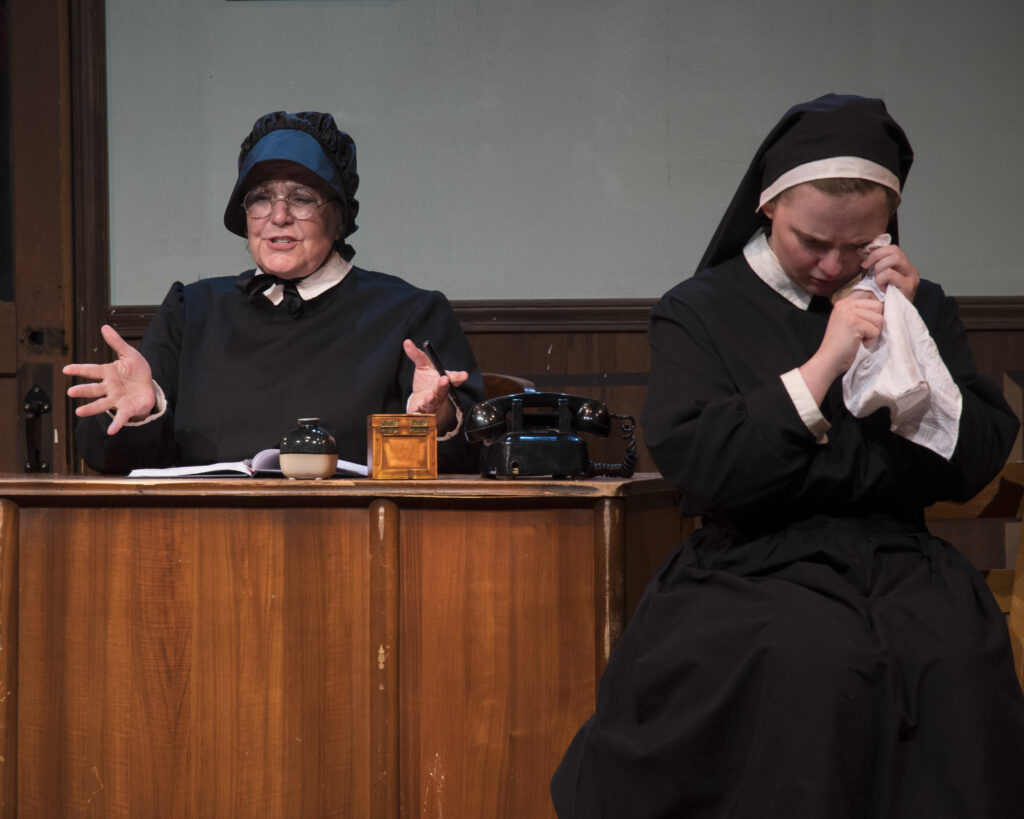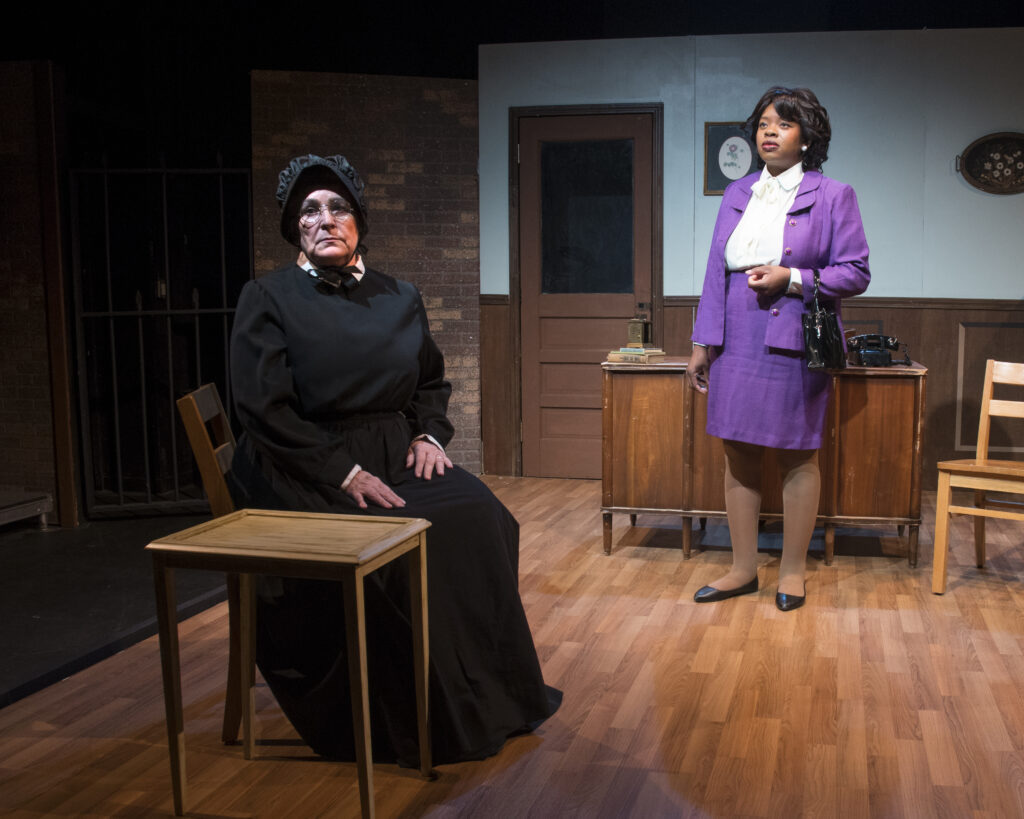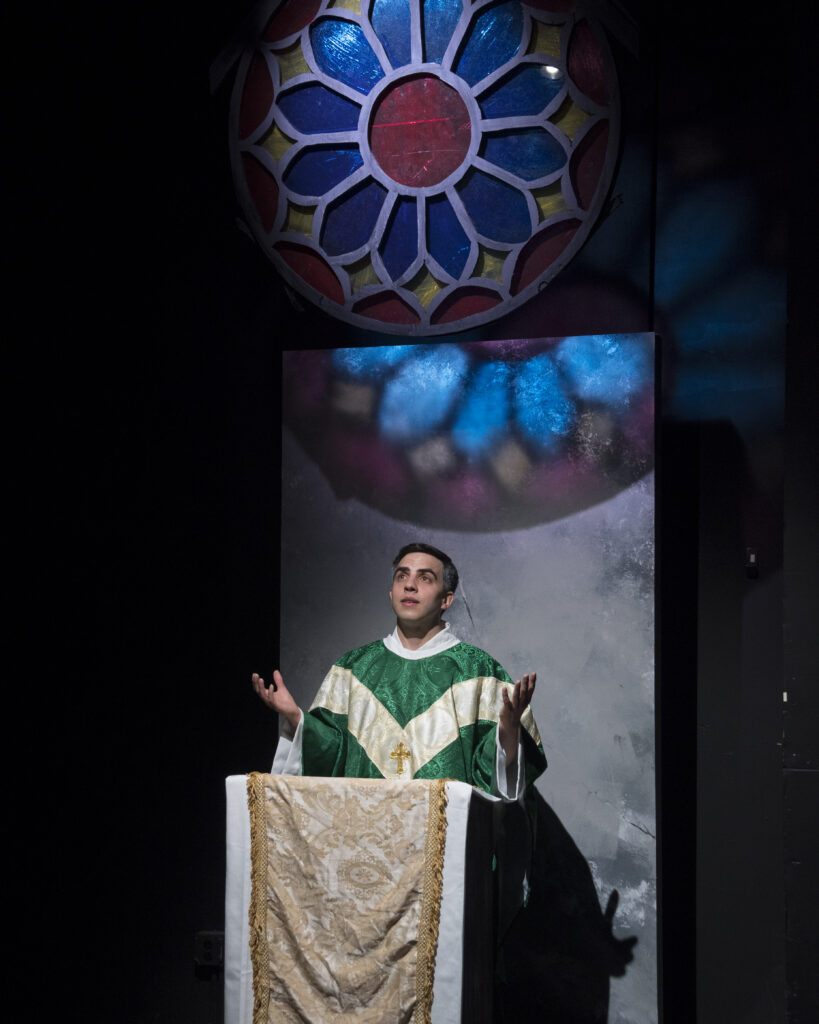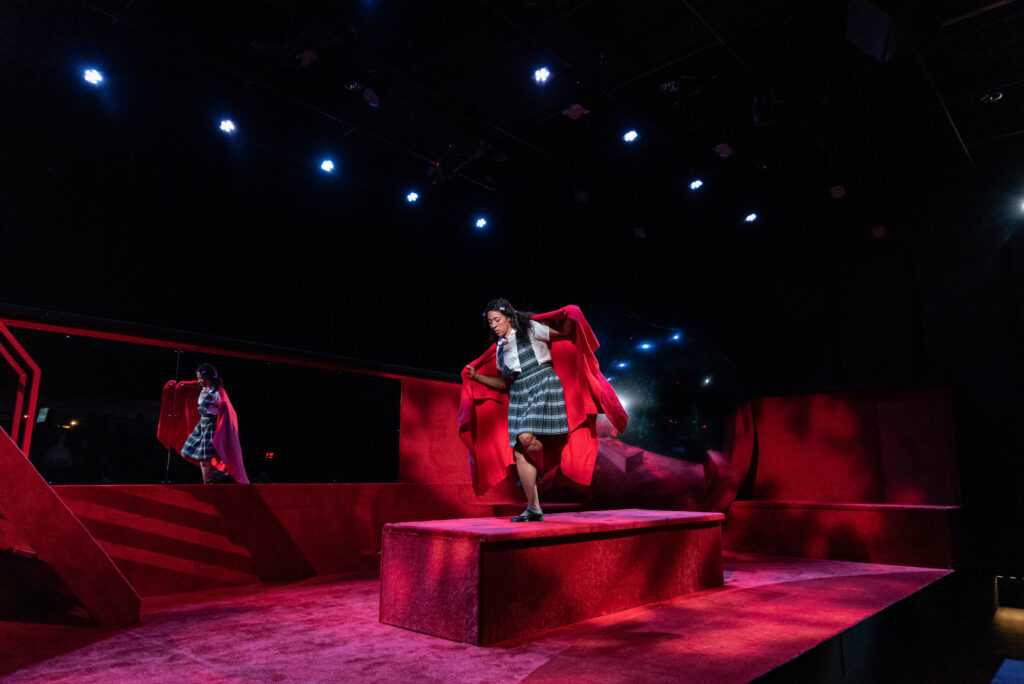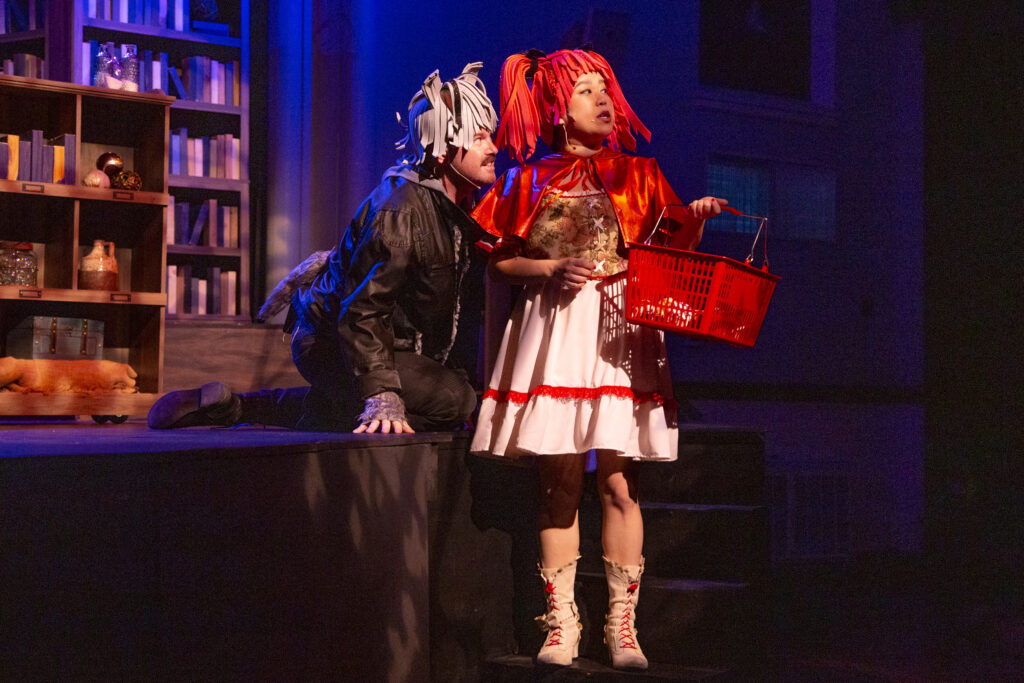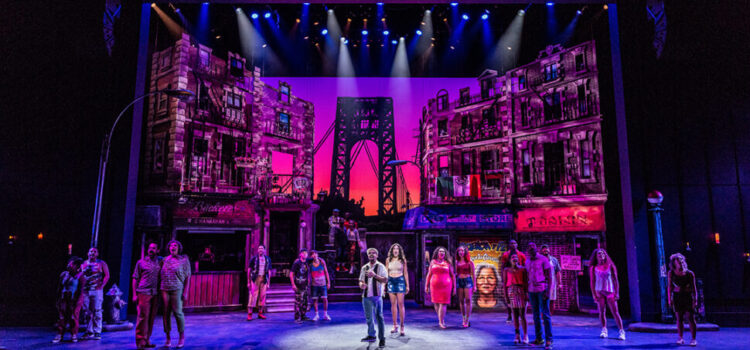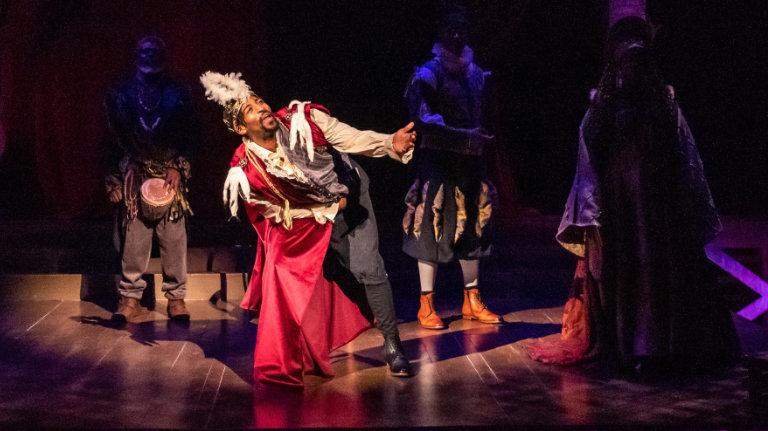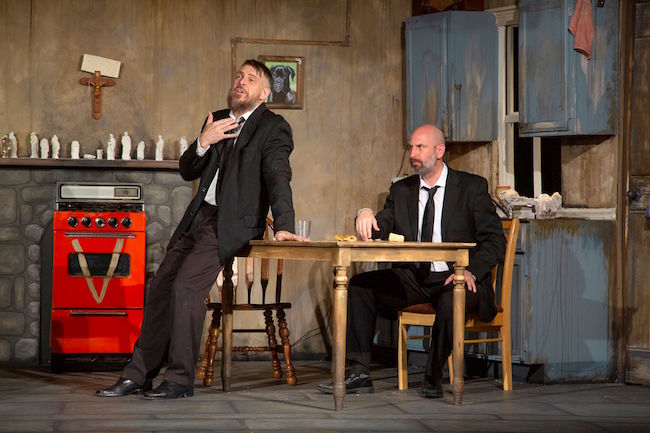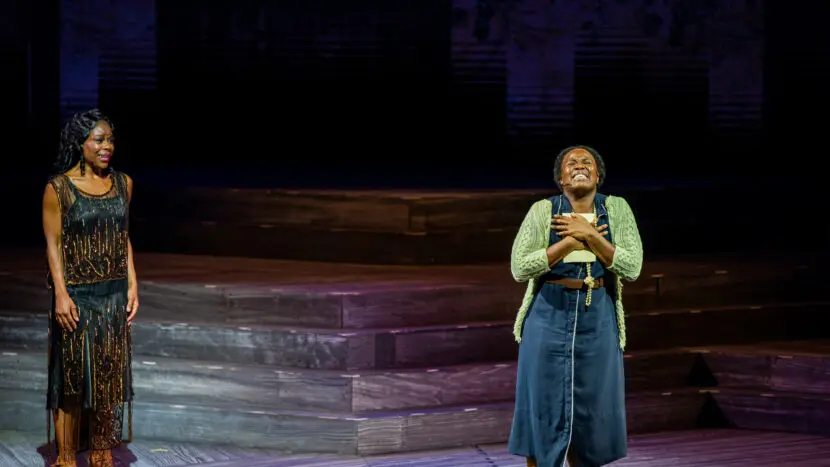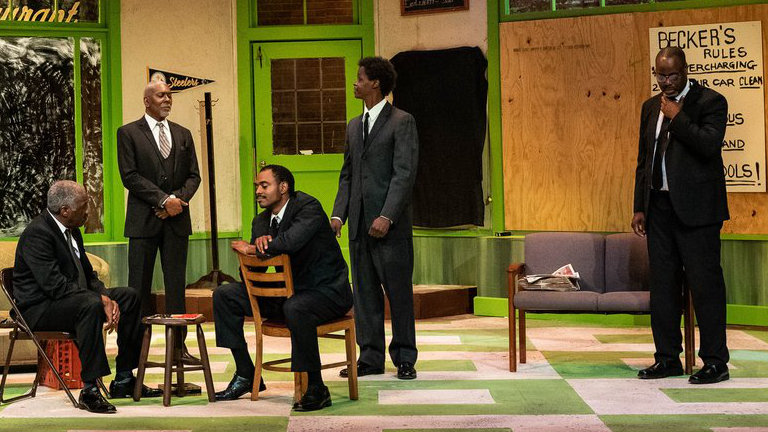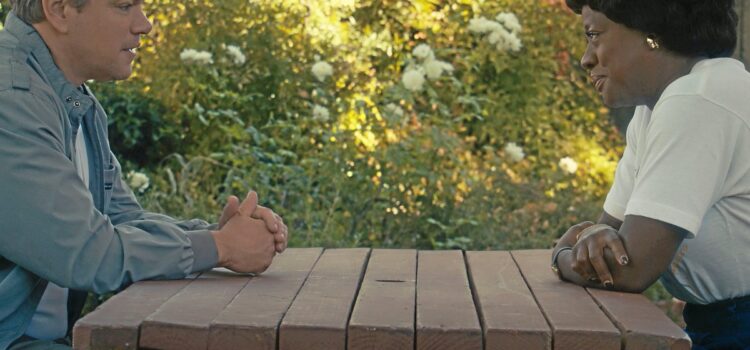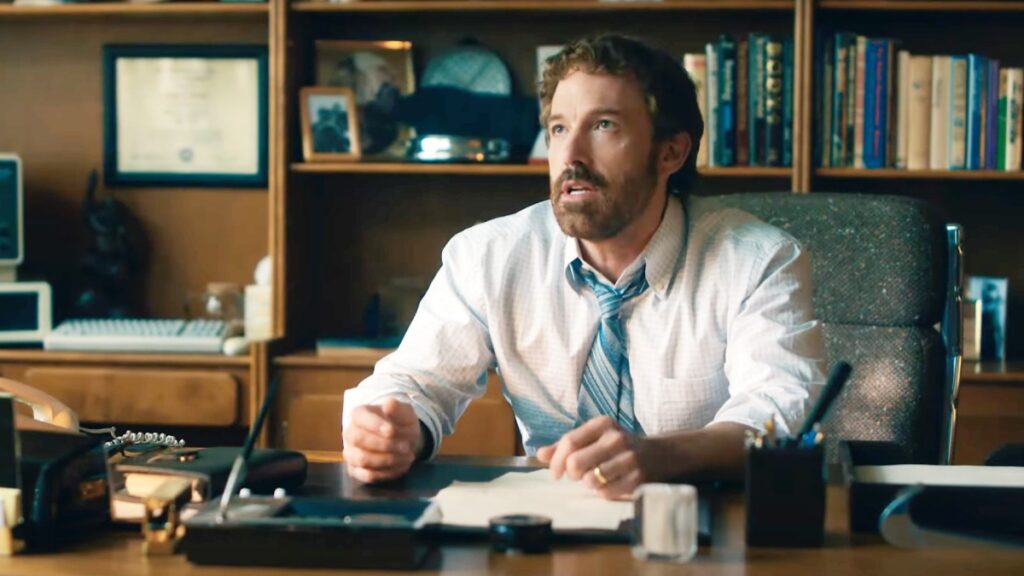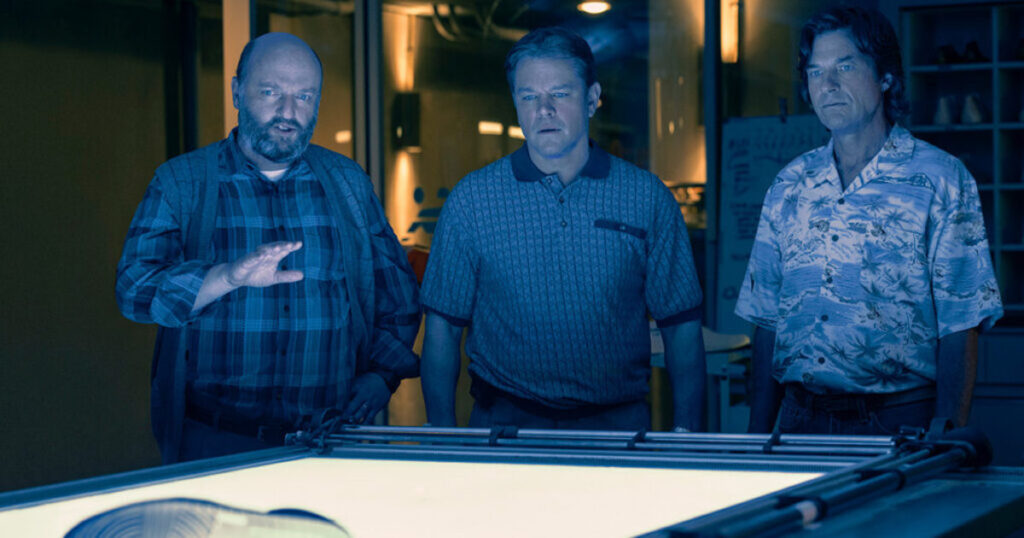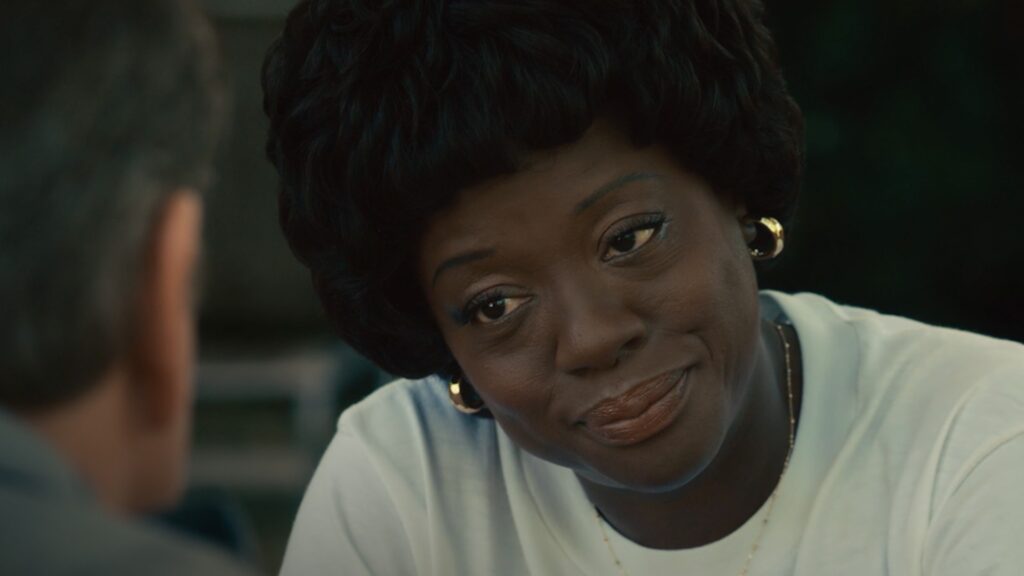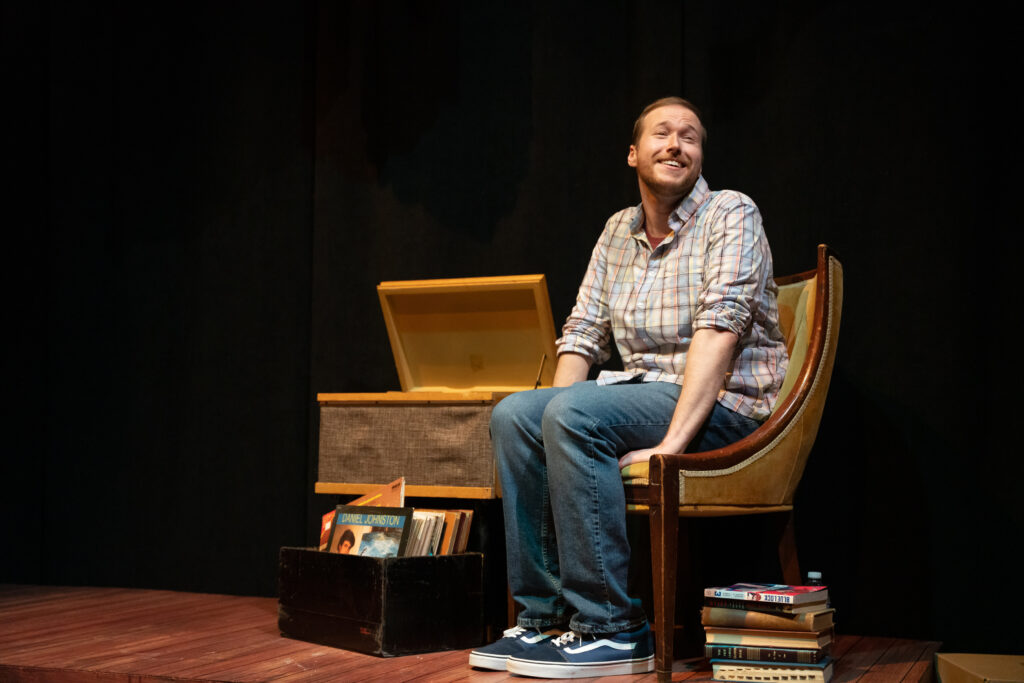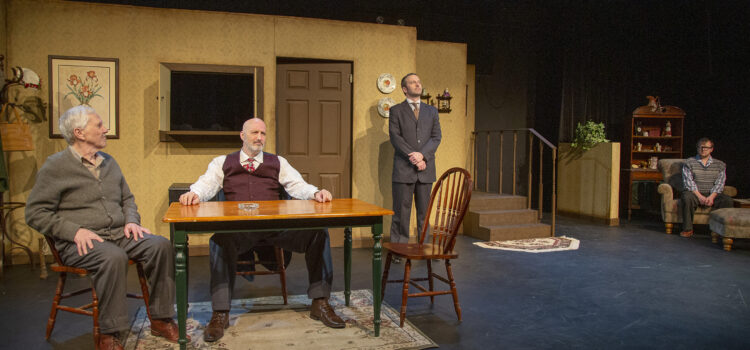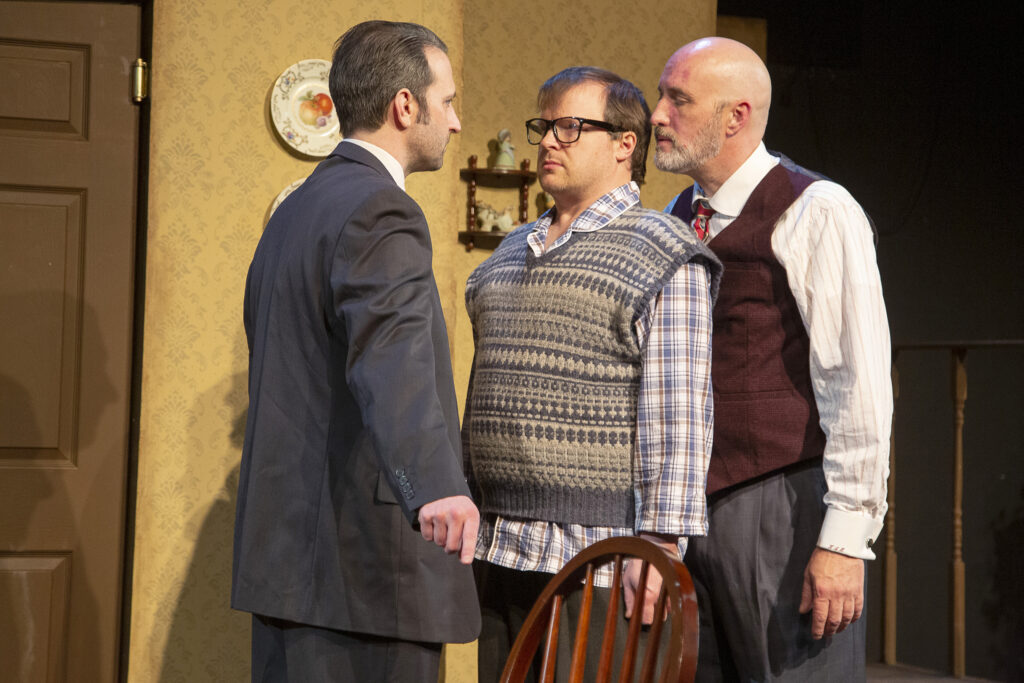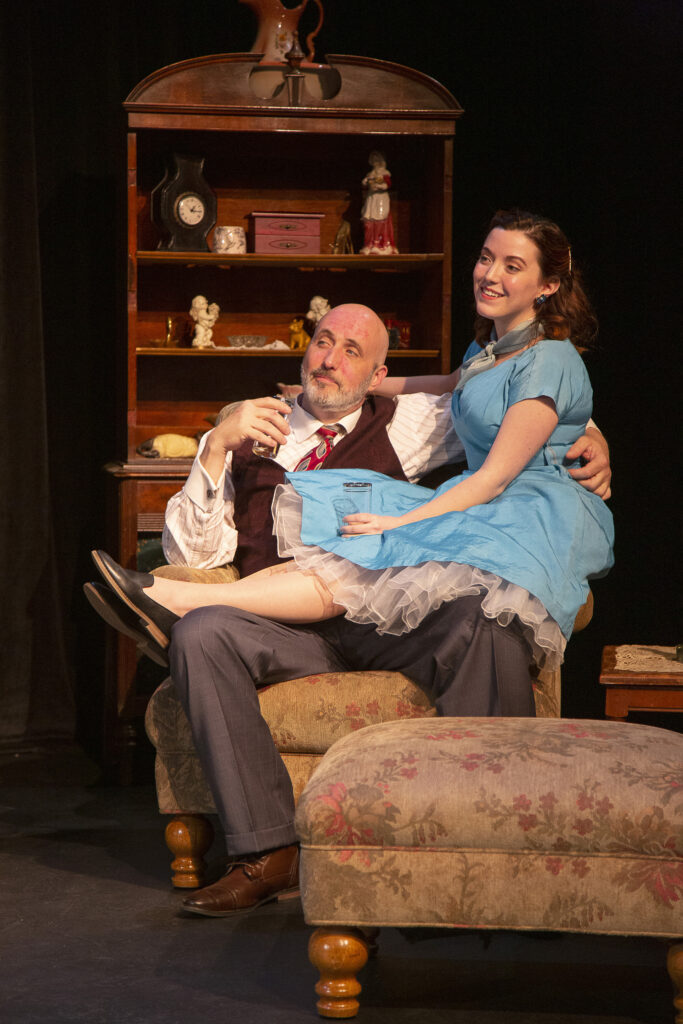By Lynn Venhaus
Of course there are always notable people left off the list of nominees, but this crop of Tony Awards nominations is quite impressive. Announced this morning.
Notable news is that two of our local theater titans have been nominated as producers this season. Jack Lane, retired as Stages St Louis executive director, is one of the producers on “& Juliet,” a lively jukebox musical with familiar pop tunes by Max Martin, with 9 nominations, including Best Musical, and Mike Isaacson, Muny executive producer and artistic director, is nominated, along with his producing partner Kristin Caskey, for “Parade,” the Jason Robert Brown musical, as Best Musical Revival, a total of 6 nominations, including leads Ben Platt and Micaela Diamond.
(I was introduced to this outstanding musical by R-S Theatrics, which presented it in 2013, with memorable performances by Pete Winfrey and Jennifer Theby Quinn, and Marshall Jennings.).
Some performers that we’ve seen in town in shows are also part of the Tonys conversation this year.
J. Harrison Ghee, St Louis Theater Circle nominee for “Kinky Boots” and “Chicago” at the Muny (as Velma Kelly), is earning rave reviews in the Jack Lemmon role in the “Some Like It Hot” musical, which is the most nominated show this year – 13. They are nominated, making history as one of the first nonbinary identifying performers.
Here is their statement:
“I’m thrilled! It has been a fantastic journey to portray Jerry/Daphne, and I’ve been overwhelmed — in a good way — to see how audiences have received these characters. I’m thankful to every member of this production for creating such an affirming space where I get to show the complexity of this human and go on a beautiful ride every time the curtains go up. I’m grateful to the committee for recognizing this work. It’s a moment I will cherish forever.”
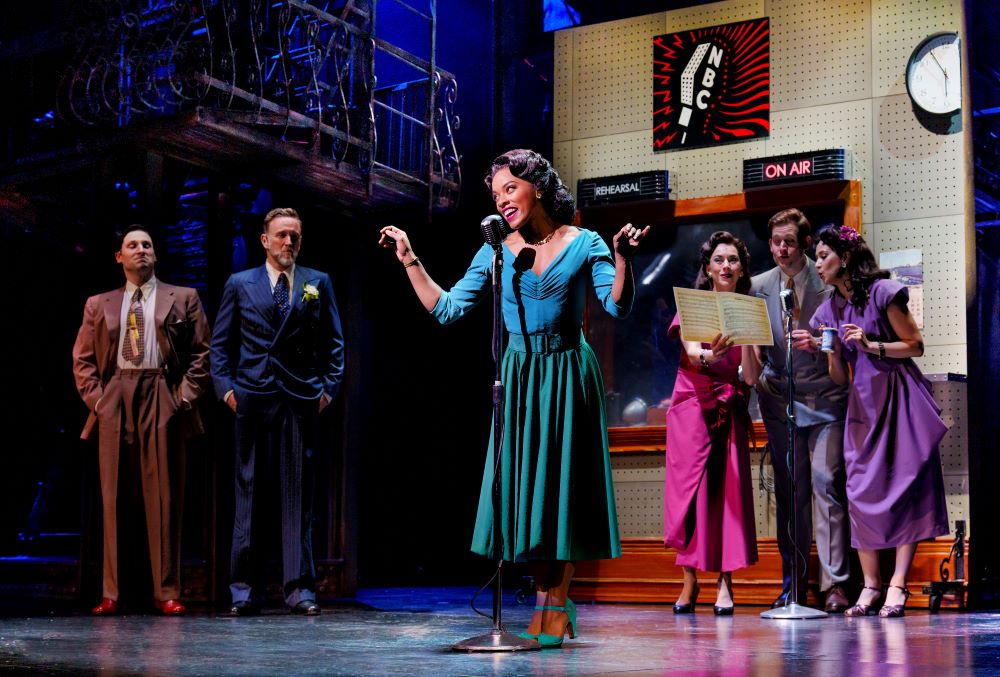
Other Muny favorites on Broadway this spring include Ben Davis as Gordon Kendrick (last year’s award-winning Sweeney Todd) and Emily Skinner (Ursula in “The Little Mermaid”) as Madame Veltri in “New York, New York,” and Jay Armstrong Johnson (“Hello Dolly” and “42nd Street”) in “Parade.”
A lot of buzzy big names are among the nominations, and their shows earned rave reviews. One show that I would have loved to have seen is the revival of “Topdog/Underdog” with Corey Hawkins and Yahya Abdul-Mateen II, which ran Oct 2022-Jan. 15, 2023. I enjoy their film work, and I can only image the electricity on stage.
I was fortunately introduced to Suzan-Lori Parks’ intense play by St Louis Actors’ Studio in 2013 with unforgettable performances by Chauncy Thomas and Reginald Pierre,
Here’s the full list of nominees. Awards are on June 11.
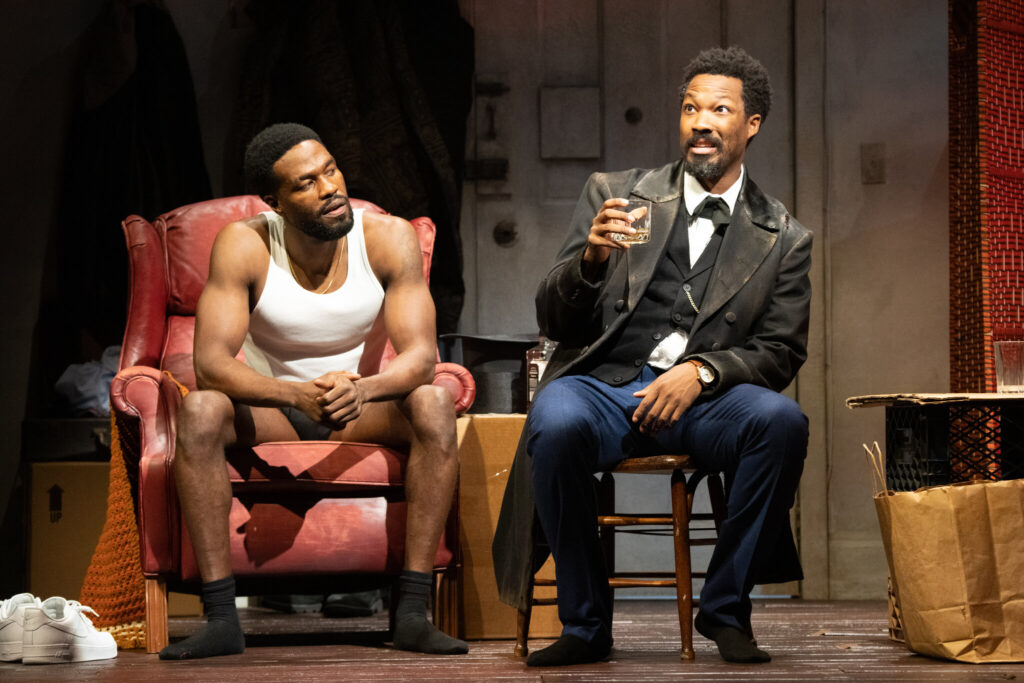
Best Play
Ain’t No Mo’
Between Riverside and Crazy
Cost of Living
Fat Ham
Leopoldstadt
Best Musical
& Juliet
Kimberly Akimbo
New York, New York
Shucked
Some Like It Hot
Best Revival of a Play
August Wilson’s The Piano Lesson
A Doll’s House
The Sign in Sidney Brustein’s Window
Suzan-Lori Parks’ Topdog/Underdog
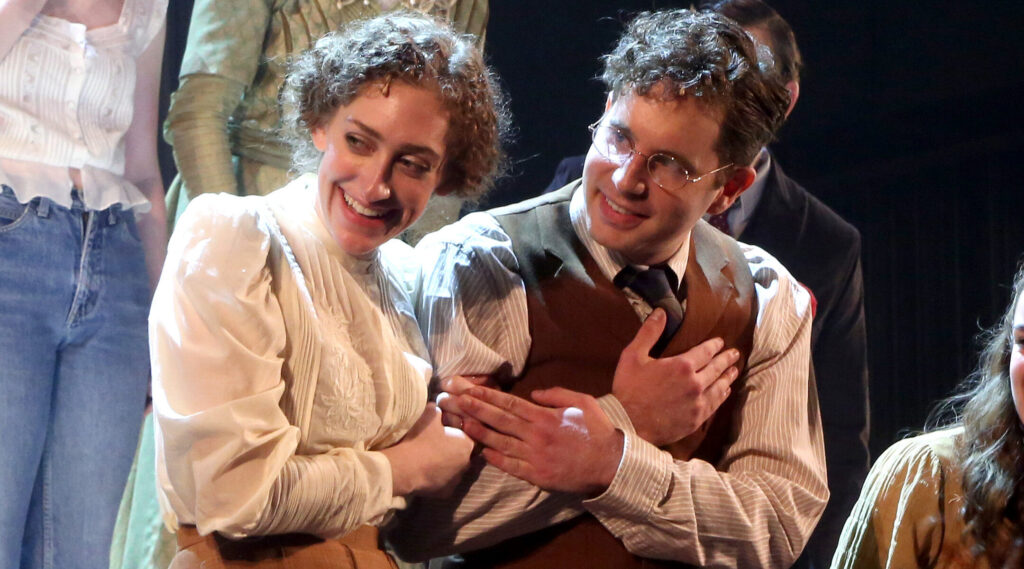
Best Revival of a Musical
Into the Woods
Lerner & Loewe’s Camelot
Parade
Sweeney Todd: The Demon Barber of Fleet Street
Best Book of a Musical
& Juliet
David West Read
Kimberly Akimbo
David Lindsay-Abaire
New York, New York
David Thompson & Sharon Washington
Shucked
Robert Horn
Some Like It Hot
Matthew López & Amber Ruffin
Best Original Score (Music and/or Lyrics) Written for the Theatre
Almost Famous
Music: Tom Kitt
Lyrics: Cameron Crowe & Tom Kitt
Kimberly Akimbo
Music: Jeanine Tesori Lyrics: David Lindsay-Abaire
KPOP
Music & Lyrics: Helen Park & Max Vernon
Shucked
Music and Lyrics: Brandy Clark & Shane McAnally
Some Like It Hot
Music: Marc Shaiman
Lyrics: Scott Wittman & Marc Shaiman

Best Performance by an Actor in a Leading Role in a Play
Yahya Abdul-Mateen II, Suzan-Lori Parks’ Topdog/Underdog
Corey Hawkins, Suzan-Lori Parks’ Topdog/Underdog
Sean Hayes, Good Night, Oscar
Stephen McKinley Henderson, Between Riverside and Crazy
Wendell Pierce, Arthur Miller’s Death of a Salesman
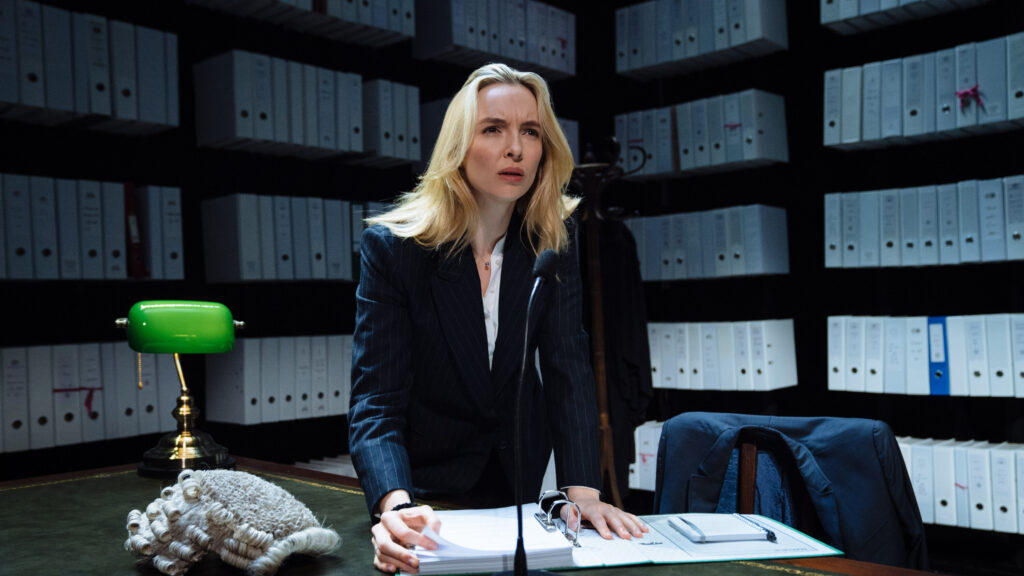
Best Performance by an Actress in a Leading Role in a Play
Jessica Chastain, A Doll’s House
Jodie Comer, Prima Facie
Jessica Hecht, Summer, 1976
Audra McDonald, Ohio State Murders
Best Performance by an Actor in a Leading Role in a Musical
Christian Borle, Some Like It Hot
J. Harrison Ghee, Some Like It Hot
Josh Groban, Sweeney Todd: The Demon Barber of Fleet Street
Brian d’Arcy James, Into the Woods
Ben Platt, Parade
Colton Ryan, New York, New York
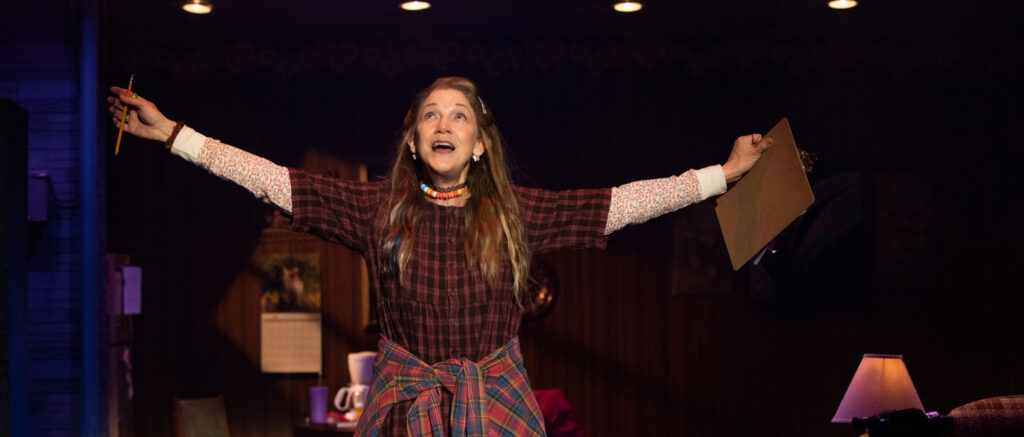
Best Performance by an Actress in a Leading Role in a Musical
Annaleigh Ashford, Sweeney Todd: The Demon Barber of Fleet Street
Sara Bareilles, Into the Woods
Victoria Clark, Kimberly Akimbo
Lorna Courtney, & Juliet
Micaela Diamond, Parade
Best Performance by an Actor in a Featured Role in a Play
Jordan E. Cooper, Ain’t No Mo’
Samuel L. Jackson, August Wilson’s The Piano Lesson
Arian Moayed, A Doll’s House
Brandon Uranowitz, Leopoldstadt
David Zayas, Cost of Living
Best Performance by an Actress in a Featured Role in a Play
Nikki Crawford, Fat Ham
Crystal Lucas-Perry, Ain’t No Mo’
Miriam Silverman, The Sign in Sidney Brustein’s Window
Katy Sullivan, Cost of Living
Kara Young, Cost of Living

Best Performance by an Actor in a Featured Role in a Musical
Kevin Cahoon, Shucked
Justin Cooley, Kimberly Akimbo
Kevin Del Aguila, Some Like It Hot
Jordan Donica, Lerner & Loewe’s Camelot
Alex Newell, Shucked
Best Performance by an Actress in a Featured Role in a Musical
Julia Lester, Into the Woods
Ruthie Ann Miles, Sweeney Todd: The Demon Barber of Fleet Street
Bonnie Milligan, Kimberly Akimbo
NaTasha Yvette Williams, Some Like It Hot
Betsy Wolfe, & Juliet
Best Scenic Design of a Play
Miriam Buether, Prima Facie
Tim Hatley & Andrzej Goulding, Life of Pi
Rachel Hauck, Good Night, Oscar
Richard Hudson, Leopoldstadt
Dane Laffrey & Lucy Mackinnon, A Christmas Carol
Best Scenic Design of a Musical
Beowulf Boritt, New York, New York
Mimi Lien, Sweeney Todd: The Demon Barber of Fleet Street
Michael Yeargan & 59 Productions, Lerner & Loewe’s Camelot
Scott Pask, Shucked
Scott Pask, Some Like It Hot

Best Costume Design of a Play
Tim Hatley, Nick Barnes & Finn Caldwell, Life of Pi
Dominique Fawn Hill, Fat Ham
Brigitte Reiffenstuel, Leopoldstadt
Emilio Sosa, Ain’t No Mo’
Emilio Sosa, Good Night, Oscar
Best Costume Design of a Musical
Gregg Barnes, Some Like It Hot
Susan Hilferty, Parade
Jennifer Moeller, Lerner & Loewe’s Camelot
Clint Ramos & Sophia Choi, KPOP
Paloma Young, & Juliet
Donna Zakowska, New York, New York

Best Lighting Design of a Play
Neil Austin, Leopoldstadt
Natasha Chivers, Prima Facie
Jon Clark, A Doll’s House Bradley King, Fat Ham
Tim Lutkin, Life of Pi
Jen Schriever, Arthur Miller’s Death of a Salesman
Ben Stanton, A Christmas Carol
Best Lighting Design of a Musical
Ken Billington, New York, New York
Lap Chi Chu, Lerner & Loewe’s Camelot
Heather Gilbert, Parade
Howard Hudson, & Juliet
Natasha Katz, Some Like It Hot
Natasha Katz, Sweeney Todd: The Demon Barber of Fleet Street
Best Sound Design of a Play
Jonathan Deans & Taylor Williams, Ain’t No Mo’
Carolyn Downing, Life of Pi
Joshua D. Reid, A Christmas Carol
Ben & Max Ringham, A Doll’s House
Ben & Max Ringham, Prima Facie
Best Sound Design of a Musical
Kai Harada, New York, New York
John Shivers, Shucked
Scott Lehrer & Alex Neumann, Into the Woods
Gareth Owen, & Juliet
Nevin Steinberg, Sweeney Todd: The Demon Barber of Fleet Street
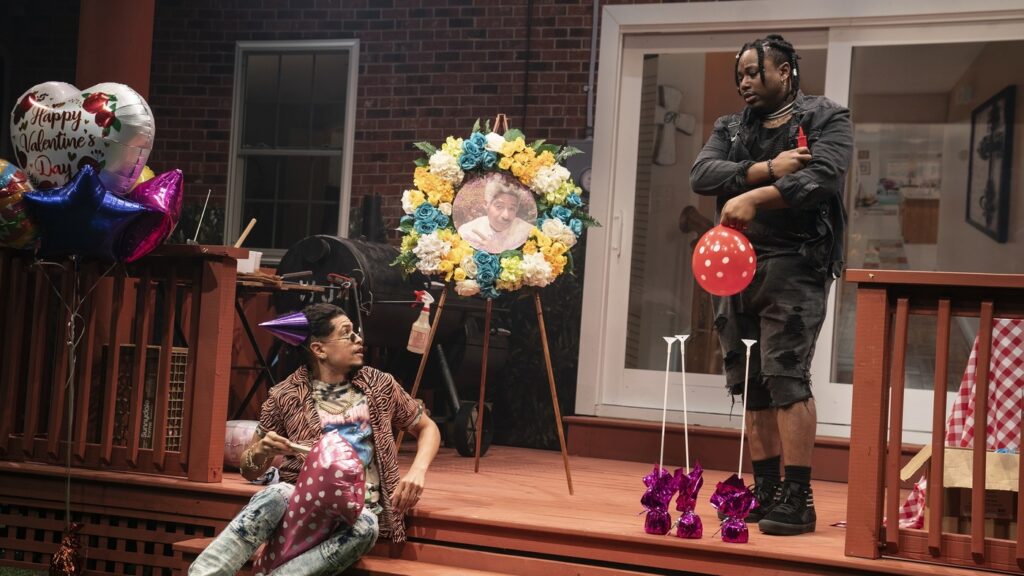
Best Direction of a Play
Saheem Ali, Fat Ham
Jo Bonney, Cost of Living
Jamie Lloyd, A Doll’s House
Patrick Marber, Leopoldstadt
Stevie Walker-Webb, Ain’t No Mo’ Max Webster, Life of Pi
Best Direction of a Musical
Michael Arden, Parade
Lear deBessonet, Into the Woods
Casey Nicholaw, Some Like It Hot
Jack O’Brien, Shucked
Jessica Stone, Kimberly Akimbo
Best Choreography
Steven Hoggett, Sweeney Todd: The Demon Barber of Fleet Street
Casey Nicholaw, Some Like It Hot
Susan Stroman, New York, New York
Jennifer Weber, & Juliet
Jennifer Weber, KPOP
Best Orchestrations
Bill Sherman and Dominic Fallacaro, & Juliet
John Clancy, Kimberly Akimbo
Jason Howland, Shucked
Charlie Rosen & Bryan Carter, Some Like It Hot
Daryl Waters & Sam Davis, New York, New York
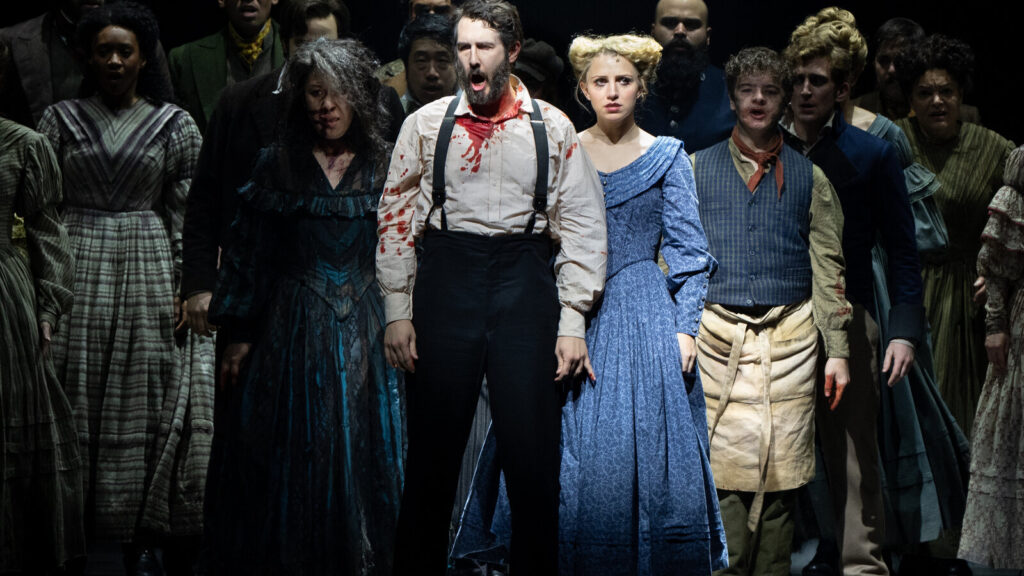
Cover Photo: Some Like It Hot

Lynn (Zipfel) Venhaus has had a continuous byline in St. Louis metro region publications since 1978. She writes features and news for Belleville News-Democrat and contributes to St. Louis magazine and other publications.
She is a Rotten Tomatoes-approved film critic, currently reviews films for Webster-Kirkwood Times and KTRS Radio, covers entertainment for PopLifeSTL.com and co-hosts podcast PopLifeSTL.com…Presents.
She is a member of Critics Choice Association, where she serves on the women’s and marketing committees; Alliance of Women Film Journalists; and on the board of the St. Louis Film Critics Association. She is a founding and board member of the St. Louis Theater Circle.
She is retired from teaching journalism/media as an adjunct college instructor.

